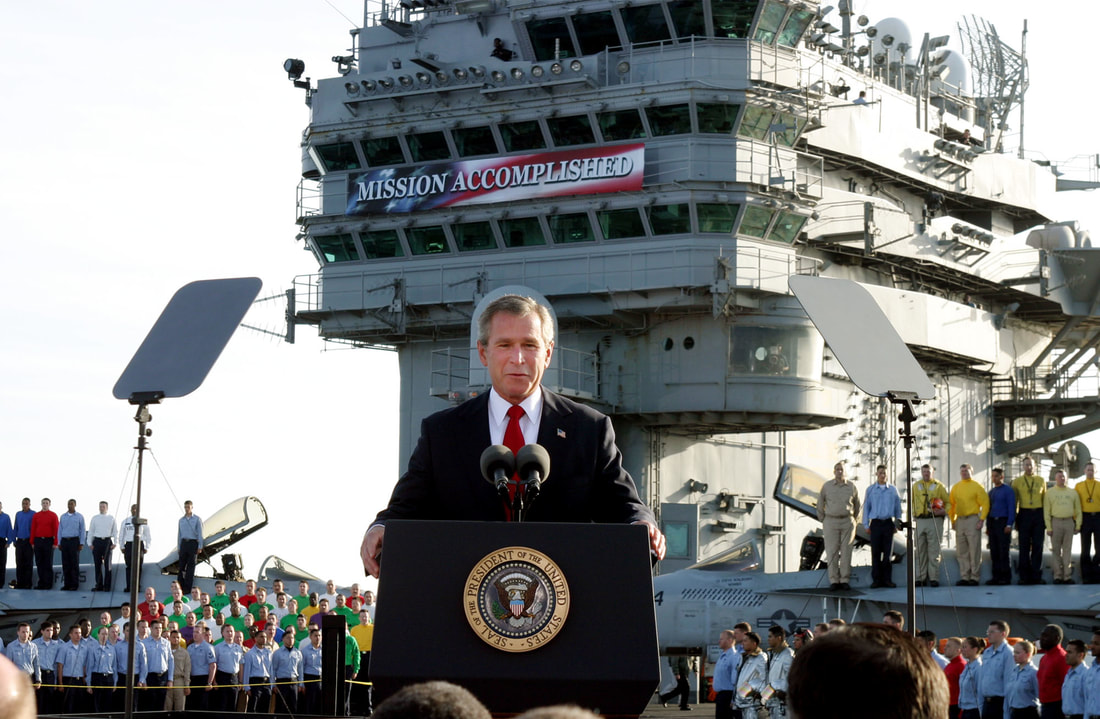But I can’t help but wonder if this is the same “victory” President Bush famously declared on the deck of the USS Abraham Lincoln with the “Mission Accomplished” banner behind him? Or even the victory that resulted from the 2007 troop surge?
Speaking just a few years ago about the surge, Senator John McCain was definitive, “We had it won, thanks to the surge. It was won.”
It’s not that these declarations were wrong per se, they just show the problems with the short-term policy objectives of US leaders. Removal of Saddam brought victory. Reducing violence through the surge brought victory. And now, victory is being reached by pushing ISIS out of Iraq.
Nearly $30 billion in fact. That may not seem like a lot of money compared to what the United States spends on its national security — $600+ billion a year — but it’s nearly a third of Iraq’s defense budget since 2003, not to mention a decent offer if you’re looking to aquire a trending social media platform.
Like the overall mission though, US efforts to build the Iraqi military have suffered from the lack of a long-term focus. Instead of emphasizing wonky concepts that take years if not decades, like military governance and civil-military relations (which can be translated as an effort to build a military bound by rules and laws) the United States has provided the equipment and training to kill the enemy.
Operations training and equipment are vital for any military, of course. But at some point you have to wonder if the definition of insanity might be doing the same thing over and over again and expecting different results. Without adequate attention to helping build a rules-bound military, the US can’t expect to come up with something new.
Corruption and human rights violations have plagued the US trained and funded Iraqi military. The process is rather simple. Iraqis, like all people, want their security forces to protect them, not steal from them, or violate their rights. When security forces commit abuses with impunity though, citizens turn to other groups for protection. In Iraq, this has been ISIS. There are many reasons individuals join violent groups that apply universally, and ones unique to Iraq, but undeniably abuses by security forces is a major one.
Instead of addressing these problems, during the current war the United States has helped perpetuate these problems. The US military lost track of $1 billion worth of humvees and assault rifles; trained units known to have committed human rights violations; and created a counterterrorism unit outside the chain of command. And despite other long-standing laws and regulations designed to protect against this, the United States continues to pass waiver legislation that makes all this legal.
ISIS is certainly an immediate threat that has been used to justify current US policy. Their commitment and capability to terrorize cannot be understated or underestimated. But if the United States doesn’t change its strategy, it risks an ISIS comeback or even the emergence of a new hybrid terrorist group. Iraq has many challenges and the US can’t fix them all. The US needs to pursue a policy that addresses long-term concerns, or the claims of victory will have all been for naught. Again.
Source: inkstickmedia.com/making-mistakes-iraq/


 RSS Feed
RSS Feed